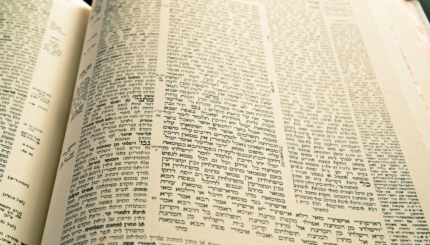“My husband forgot Mother’s Day flowers, so I had sex with another man.” So wrote an anonymous woman disappointed in her marital sex life since she became a mother. But she is not the first, nor the last woman to struggle with motherhood or Mother’s Day.
The challenges of mothering go back to childless Sarah the Matriarch, who knowing how precious offspring were gave her servant Hagar to provide a scion. Yet when Sarah did finally have one of her own, Sarah was not happy with the competition and original mommy wars got really ugly. She forced Abraham to send Hagar and her kid out to the desert to die. Did she get flowers on Mother’s Day? I doubt it.
In the next generation, Rebecca had no trouble getting pregnant. With twins she should have had double the mothering pleasure but instead fell into the trap of favoring one over the other. What did the less loved one give her for Mother’s Day? A toad? A lamb carcass? After all he was a hunter…
After her there was another round of mommy wars between sisters Leah and Rachel. Rachel had difficulty conceiving so her boys were truly precious to her. But she died in childbirth. Ask, those who have grown up without a mother, what Mother’s Day is like, they get loss.
There was Yocheved who birthed a child only to have to give him up for adoption. A mother yes, but no easy Mother’s Day for her. And Hannah who had to endure many a painful Mother’s Day while she prayed for her wish to be fulfilled. It was eventually. But the price was high. Like those enduring repeated rounds of fertility treatments she must of wondered if it was worth it. And what about Esther? She did not embrace motherhood, focusing instead on her career as a queen and “mothering” so many through her capable diplomacy that saved a nation. On Mother’s Day did she order an extra mimosa from the palace kitchen to drown the shame of not living up to expected models of feminine fulfillment?
So let’s not make assumptions about the fabulousness of Mother’s Day or even motherhood. Better than flowers or chocolate – though I’m not opposed to those – is taking time to talk with the women in your life about what the day means to them. How has motherhood lived up to their expectations? Do they feel content in the roll they have chosen? How do they manage their regrets? What are the losses, the gains and the challenges of the path that they are on? Some of the conversations will be fraught. Others wistful. Some pure joy.
But throughout the Bible we rarely hear from the mothers/or not mothers themselves, in their own words. Had the husband of the anonymous writer of the piece on extramarital affairs asked his wife about her experience of motherhood, he may have learned what she needed and hoped for. There is no simple way to make Mother’s Day perfect, but valuing the words and stories of the women in your life is the greatest way to acknowledge the complex power of motherhood and Mother’s Day.



